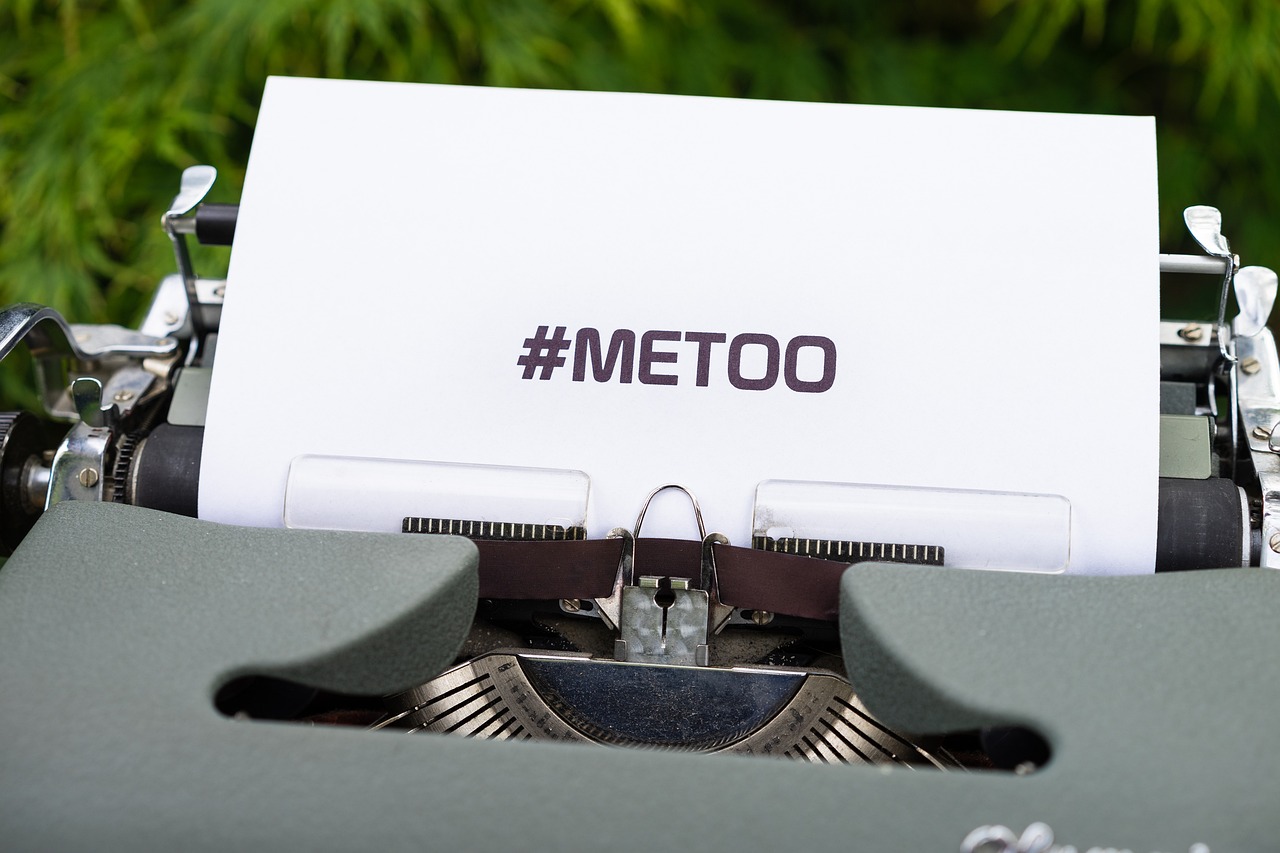
You walk into your classroom and realize that you forgot to do your homework! Your friend says "Me too!" In that moment, you probably feel relief that you aren't the only one. The phrase "Me too" lets someone know that others feel the same way. In 2017, a tweet asked people to share if they had experienced the ordeal of sexual abuse or sexual harassment, which is the receiving of inappropriate sexual comments or actions. This single tweet started the #MeToo movement. #MeToo started in the United States, but it quickly spread around the world. In October 2017, The New York Times published an article in which women told their personal stories of being sexually harassed or assaulted by a well-known Hollywood producer. If the women rejected his advances, their careers would be affected. Several days later, actress Alyssa Milano wrote the first #MeToo tweet. The phrase "Me too" was first used in 2006 by Tarana Burke in her organization which supports victims of sexual crimes. Within nine days, the #MeToo tweet had been shared 2.3 million times in 85 countries. As #MeToo spread around the world, it moved beyond the entertainment industry. Within a year, Time magazine had published a list of 140 famous men who had been accused of sexual harassment or abuse while at work. It included politicians, heads of companies, reporters, authors, doctors, entertainers, and professors. In some countries, #MeToo was adapted to fit the language; #BalanceTonPorc (French meaning "expose your pig"), and #quellavoltache (Italian meaning "that time when"). Even in countries where the culture blamed abuse and harassment on the victim, women shared their stories. The #MeToo movement showed that many people around the world disagree with that mindset. It hasn't been easy for society to hear women share their experiences. Some people have said that #MeToo has gone too far, and that it is too easy to make accusations without proof. What is evident is that #MeToo has shown that people who have been harassed or assaulted at their job or school will no longer stay silent.
你走進教室才發現自己忘了寫作業,朋友應和道:「我也是!」,發現自己並不孤單的當下,你大概會鬆一口氣。「我也是」這一用詞令人知曉對方也感同身受。2017年,一則推文希望大家分享自己曾遭遇不堪的性侵害或性騷擾經驗,也就是受到不當的性評論或舉止迫害。這則推文就此帶動了「# 我也是」運動。 「# 我也是」主題標籤雖然始於美國,卻迅速傳播全球。2017年10月,《紐約時報》發表一篇文章,講述眾多女性被某位知名好萊塢製片人性騷擾或性侵害的親身故事。這些女性表示,如果拒絕該製片人進一步的索求,事業就會受到影響。數日後,女星艾莉莎.米蘭諾發表第一則「# 我也是」推文。而「我也是」此用詞,最早發跡於塔拉娜.柏克為支持性犯罪受害者所創立的組織。短短九天,「# 我也是」推文已於85個國家轉載230萬次。 「# 我也是」運動蔓延全球之際,範圍亦跨出了娛樂界。一年後,《時代》雜誌公布曾遭控職場性騷擾或性侵害的140 位知名男士名單,其中包括政治人物、公司主管、記者、作家、醫師、藝人與教授。某些國家則以自己的語言響應「#MeToo(我也是)」運動,例如法文的#BalanceTonPorc( 意指「讓好色沙豬現形」)以及義大利文的#quellavoltache(意指「事發當下」)。即使在一些國家,文化上習慣將矛頭指向性侵與性騷擾受害者,受害女性仍挺身分享故事。「# 我也是」運動讓世人知道,譴責受害者的心態並不可取。 讓社會大眾傾聽女性的受害經驗並非易事。有些人認為「# 我也是」運動矯枉過正,在沒有證據的情況下輕易提出指控。但顯而易見的是,「# 我也是」運動讓曾在職場或校園受到騷擾或侵害的受害者,不再保持緘默。 |
沒有留言:
張貼留言